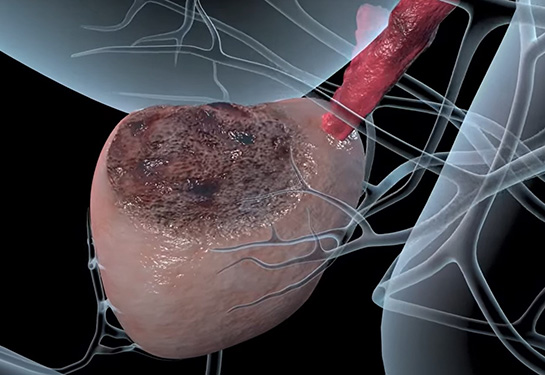Enlarged prostate: King Charles has the condition. What are the symptoms and is it serious?
Acting urology surgery department chair Marc Dall’Era explains what it is and how it can be treated
Buckingham Palace has announced that Britain’s King Charles III is being treated for an enlarged prostate. The condition is common in older men and can affect urination, but there are treatment options.

Acting Chair of UC Davis Health’s Department of Urology Surgery Marc Dall’Era shared his expertise about the condition with The Washington Post in an article published Jan. 18.
“The prostate is a testosterone-sensitive gland, so a combination of exposure and time will lead to growth,” Dall’Era told the paper. “All men experience some growth of the gland as they age, but the size varies. While average size for a 60-70-year-old man may be a small lemon, some prostates can grow to the size of baseball and beyond.”
In this Q&A, Dall’Era expands on this urology condition, including symptoms and treatment options.
What is prostate enlargement?
The official term is benign prostatic hyperplasia and it is non-cancerous. Basically, the prostate gland grows in size and presses on the urethra, the tube that lets urine escape from the bladder.
Why does the prostate become enlarged?
Prostate enlargement is very common as men age. While we don’t know the exact cause, there is clearly a genetic or hereditary component. We also know that the condition can be affected by obesity, heart issues, type 2 diabetes, lack of exercise and erectile dysfunction.
What symptoms should men watch for?
Typical symptoms of a large prostate include having to urinate more frequently during the day or night (at least eight times daily), weak urinary stream, straining to urinate and sudden sensation to have to run to the bathroom.
Are there screenings for enlarged prostate?
There are no routine screenings for prostate enlargement, but men should not hesitate to talk to their doctor if they are having symptoms. They will likely be referred to a urologist who will conduct a physical exam and may order imaging such as ultrasound or MRI.
How is an enlarged prostate treated?
Treatment is based on how serious or bothersome symptoms become. Treatments range from medications such as alpha-blockers or 5-alpha-reductase inhibitors to surgical procedures that physically open the prostatic urethra or reduce the size of the gland. We have an array of minimally invasive procedures we now use, which can be highly effective.
Can the condition become serious?
Serious problems can arise when men are unable to empty their bladder partially or completely. The bladder can overfill and urine can back up into the kidneys, causing kidney damage. Recurrent urinary tract infections can also occur. If men feel the need to urinate but are unable to do so despite the intense urge to go, they should go to the emergency room or urgent care. They may need a temporary urinary catheter placed to drain the bladder.




